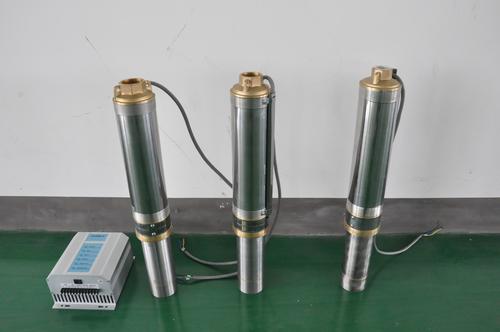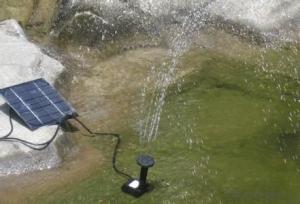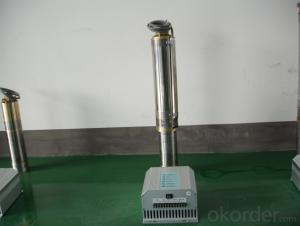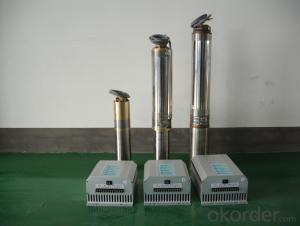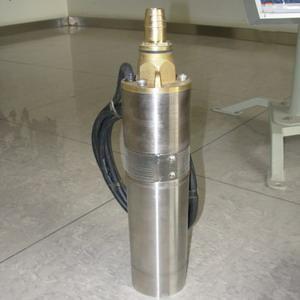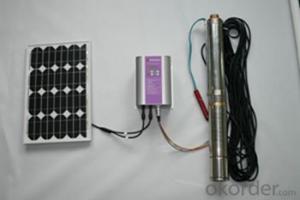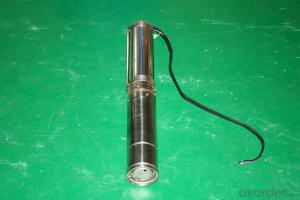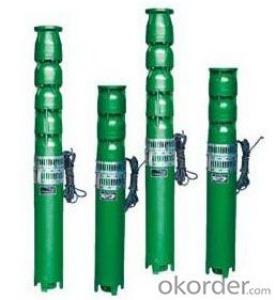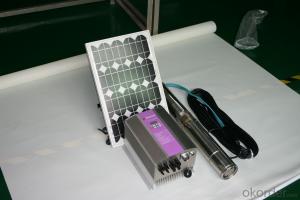Shurflo Solar Submersible Water Pump
- Loading Port:
- Shanghai
- Payment Terms:
- TT OR LC
- Min Order Qty:
- -
- Supply Capability:
- 300 set/month
OKorder Service Pledge
Quality Product, Order Online Tracking, Timely Delivery
OKorder Financial Service
Credit Rating, Credit Services, Credit Purchasing
You Might Also Like
how is the rotor made:
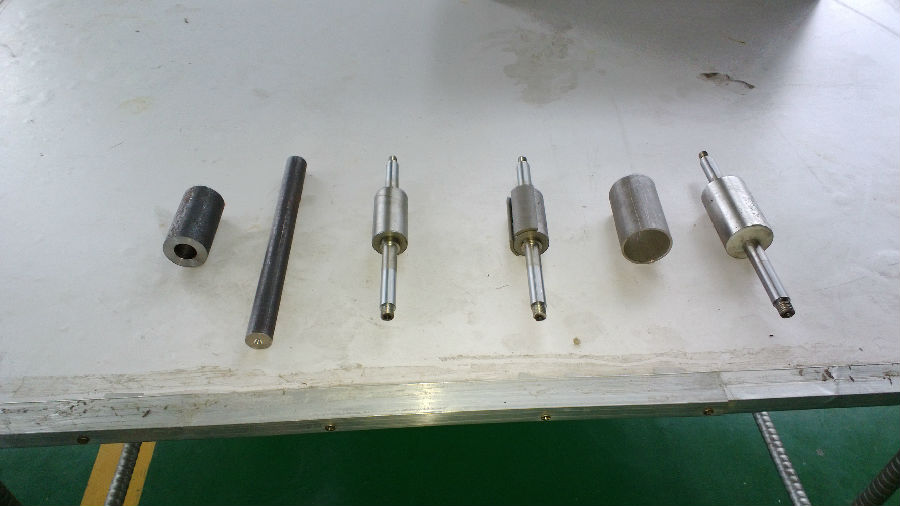
how is the motor made:
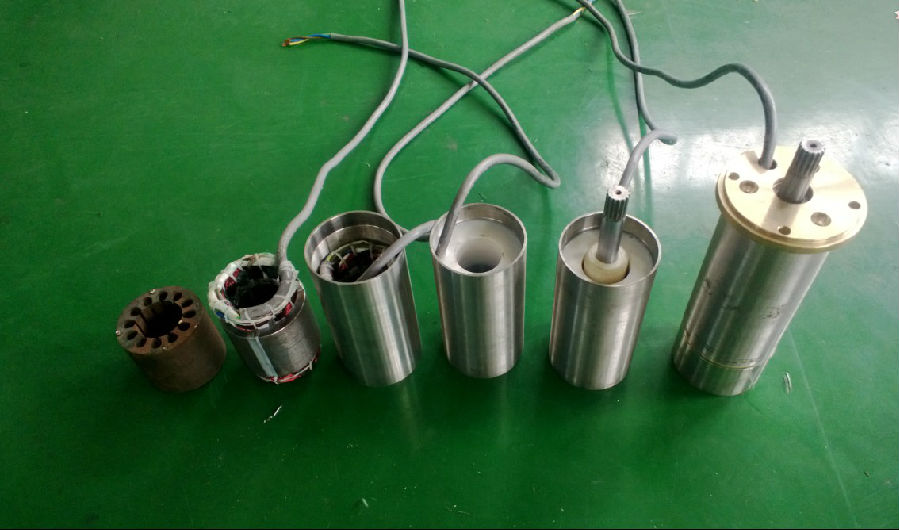
the pump :
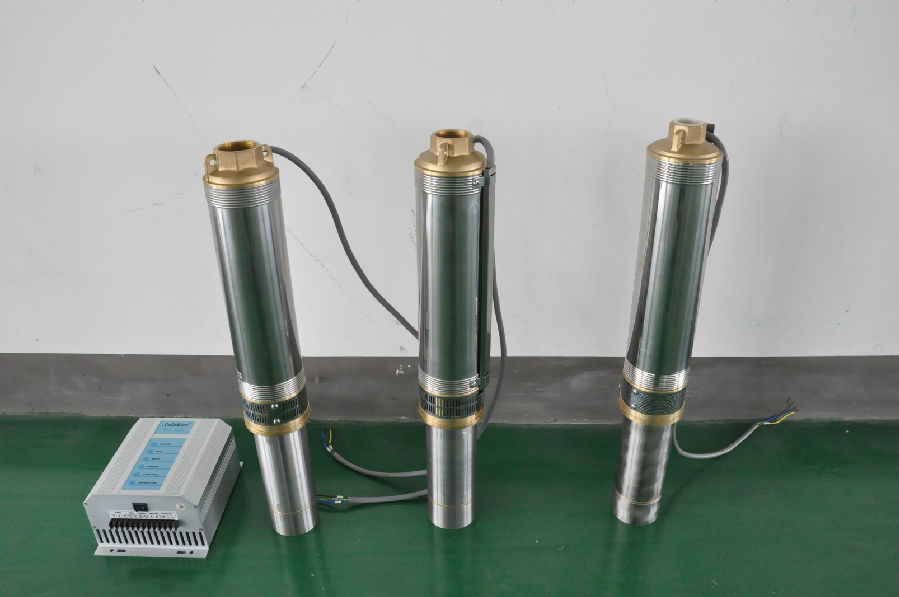
controller terminal connection:
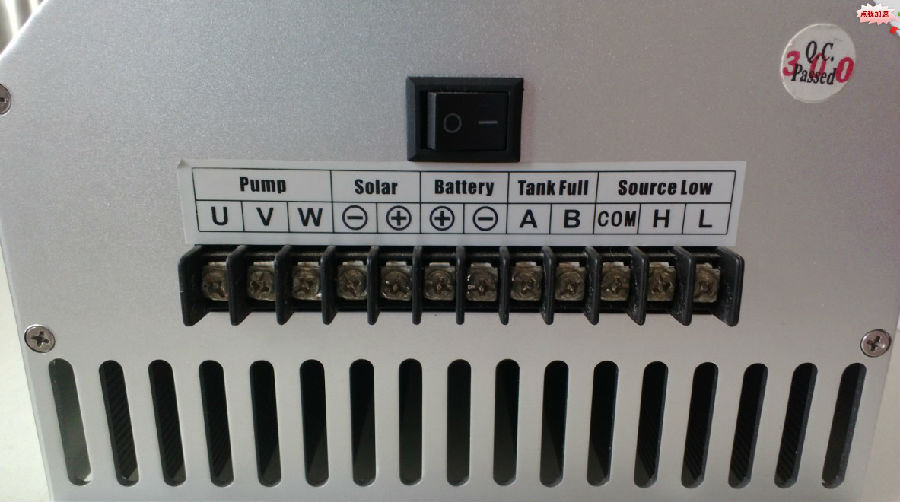
The permanent magnet:
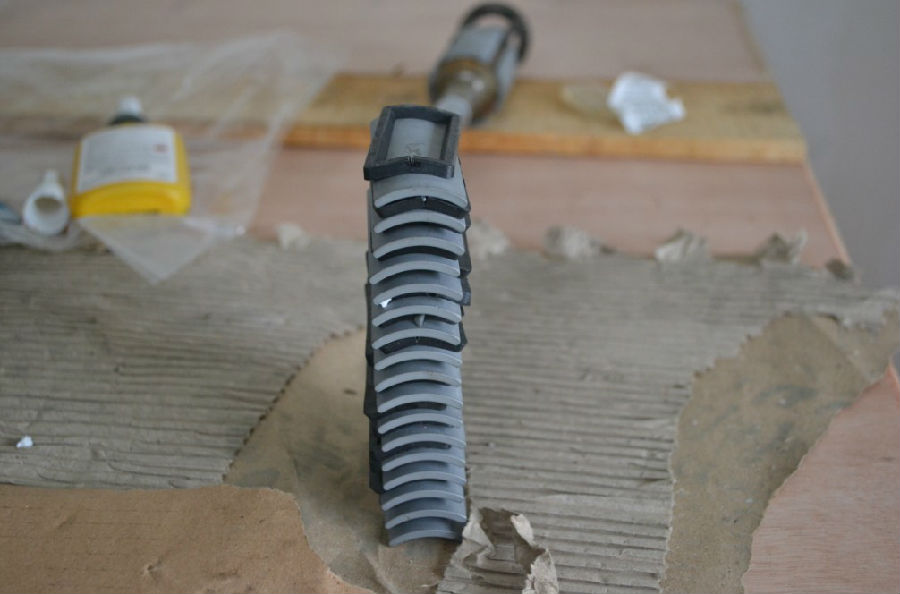
the impeller:
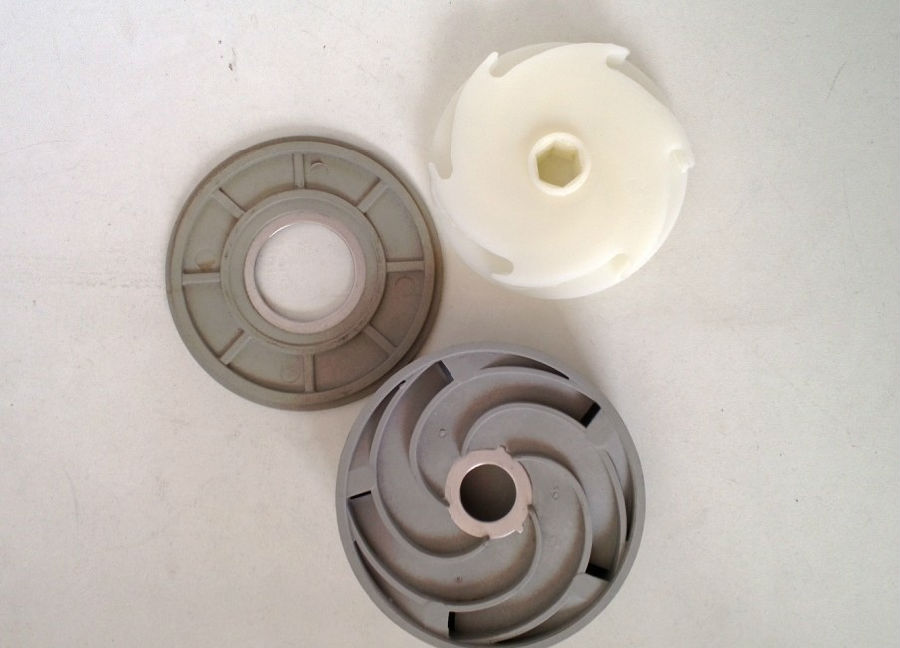
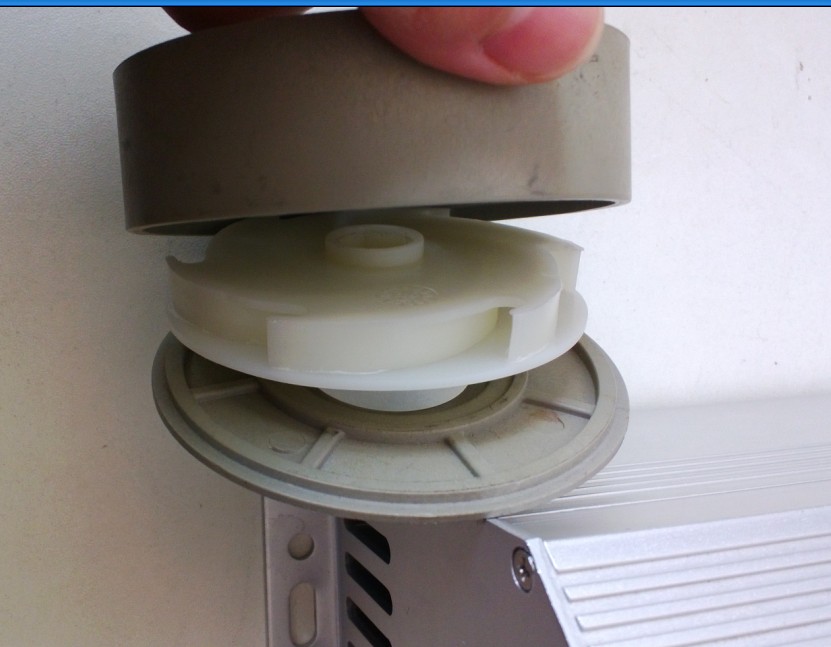
controller box:
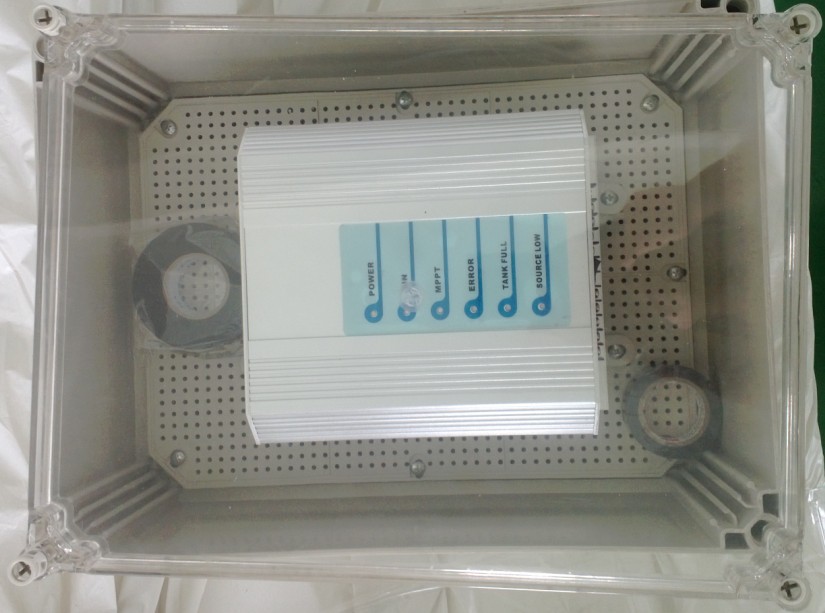
the senors:
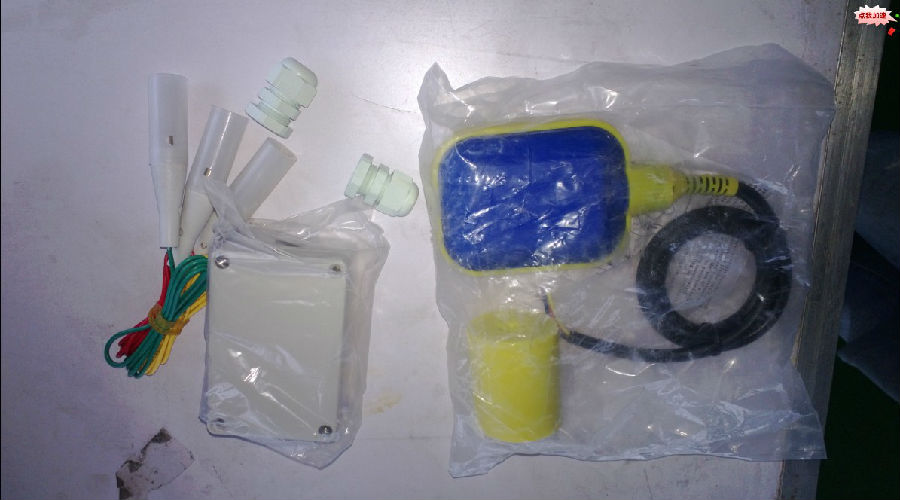
the test:
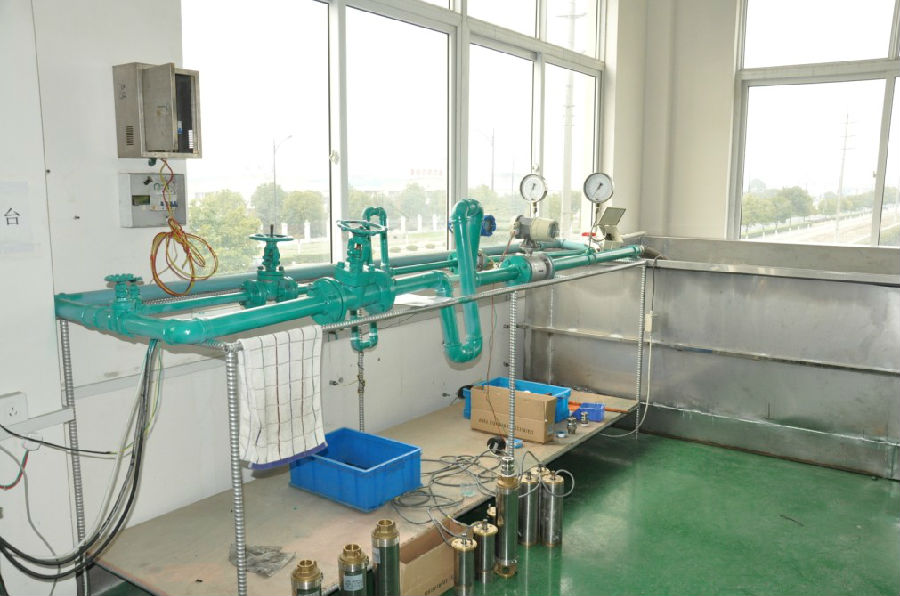
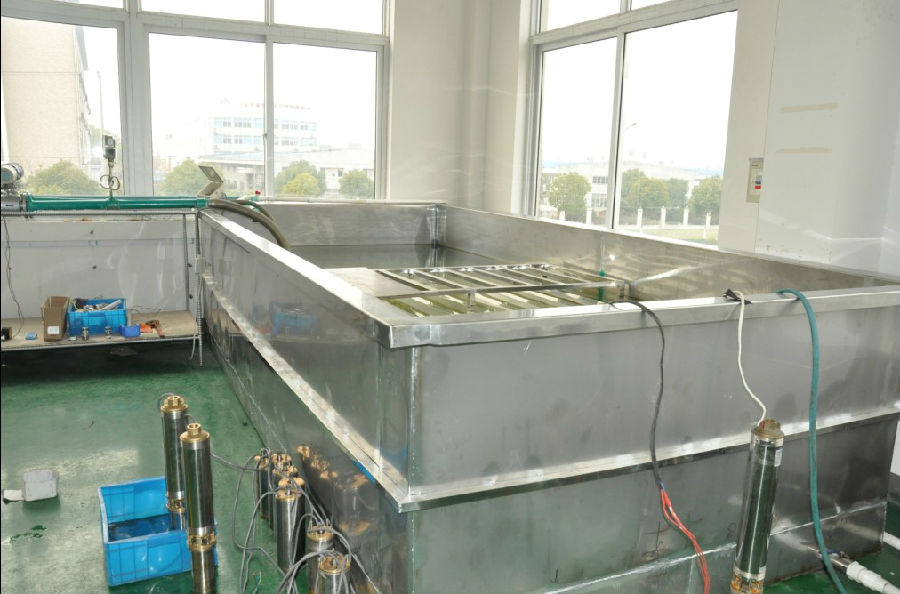
the application:
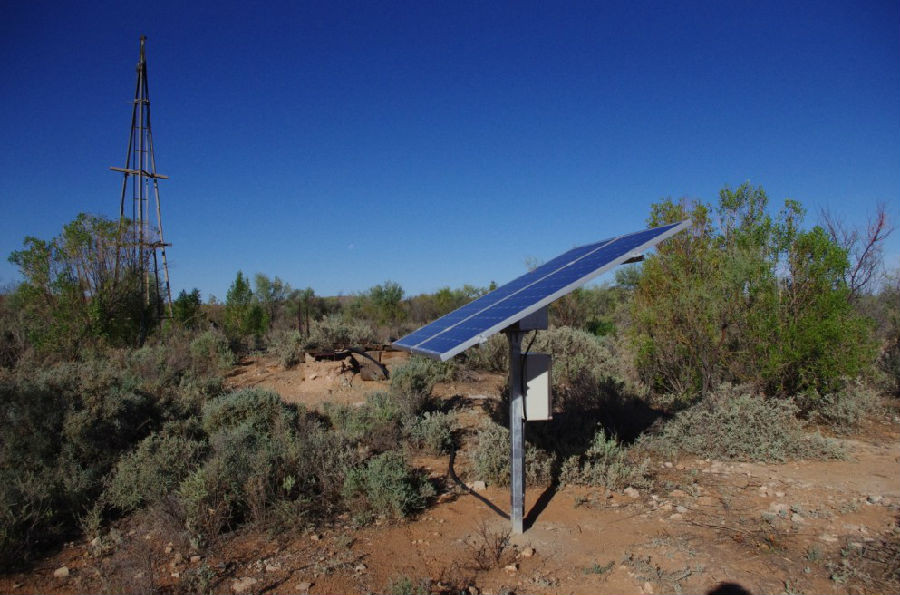
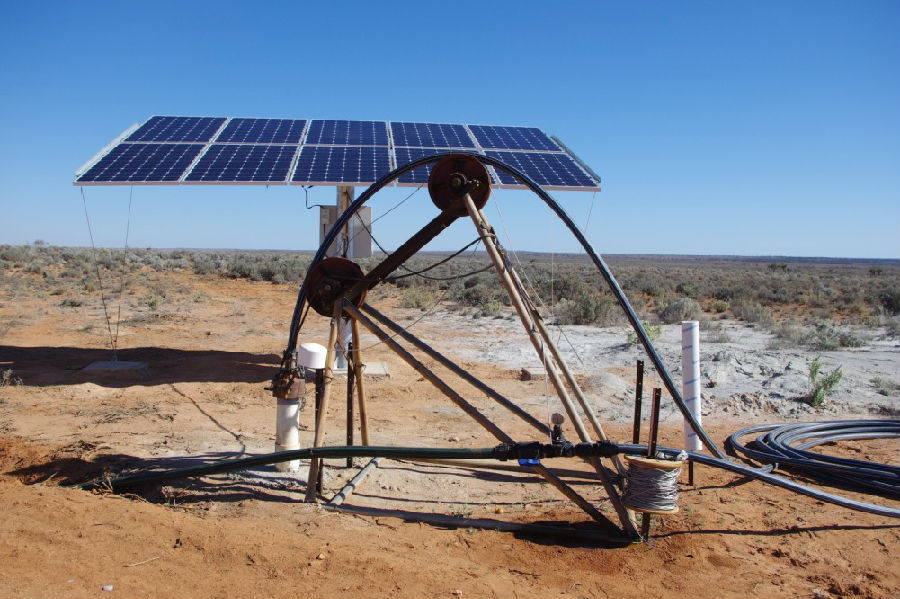
the package:
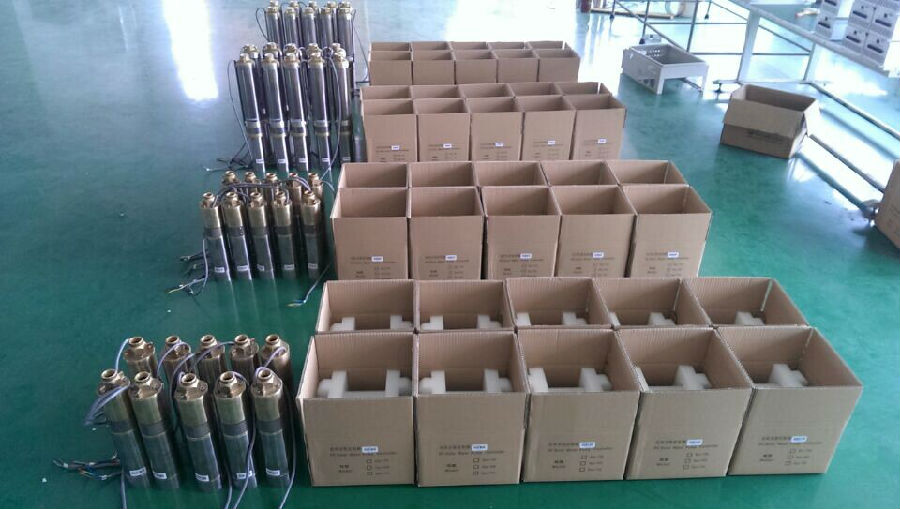
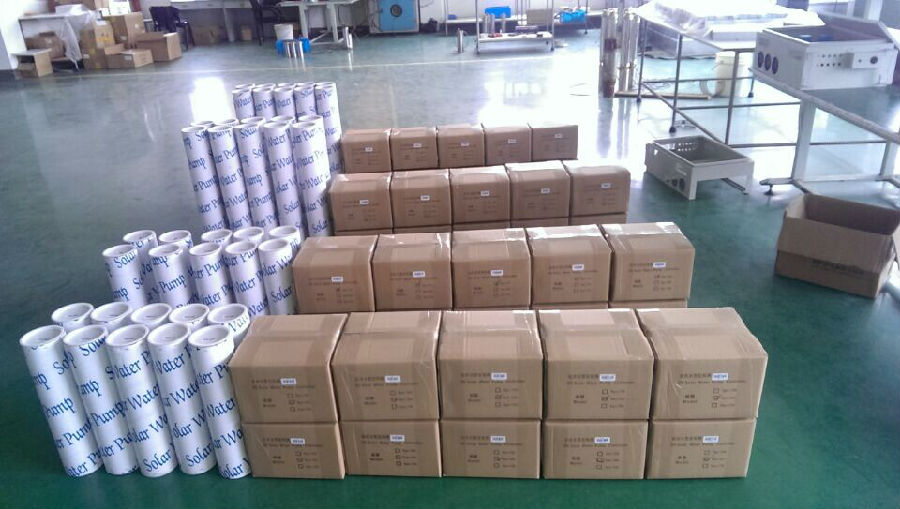
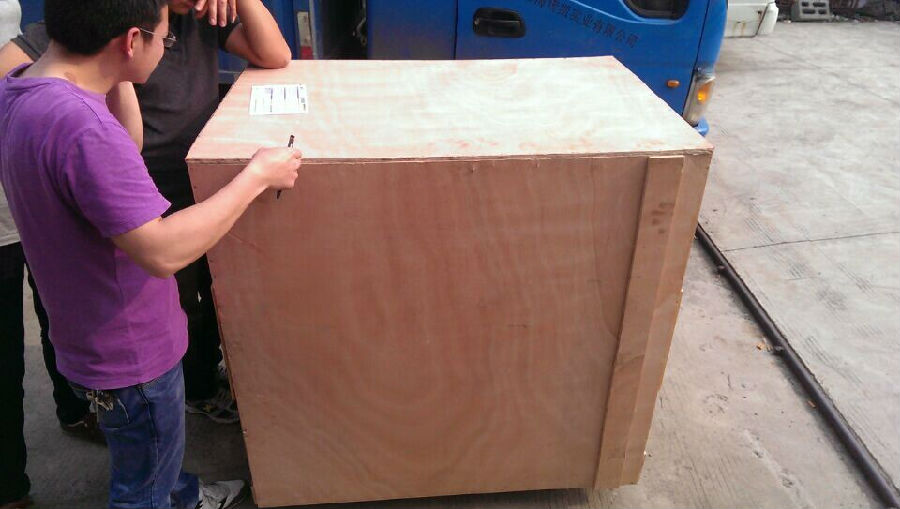
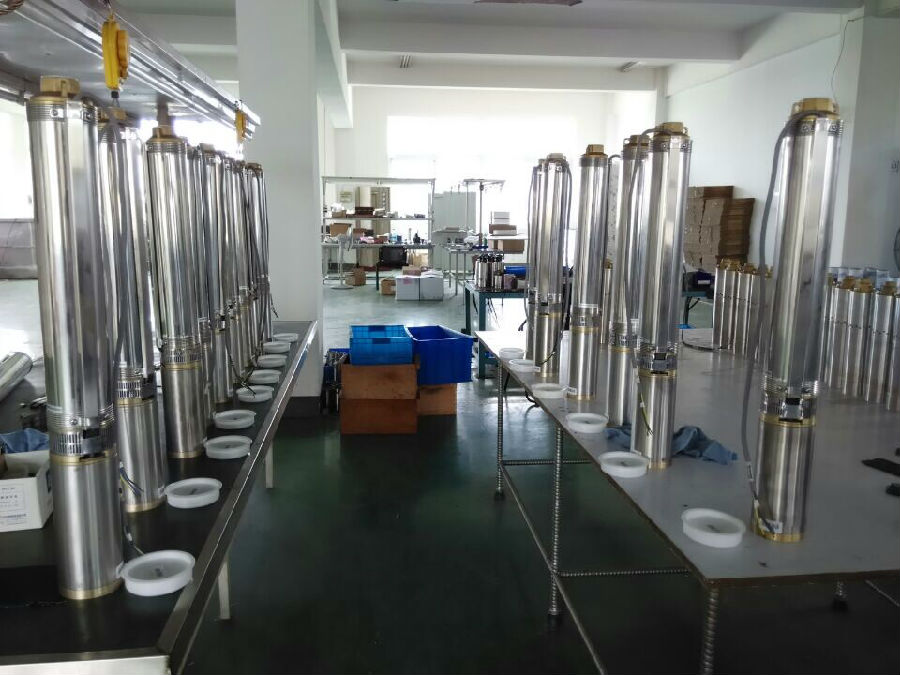
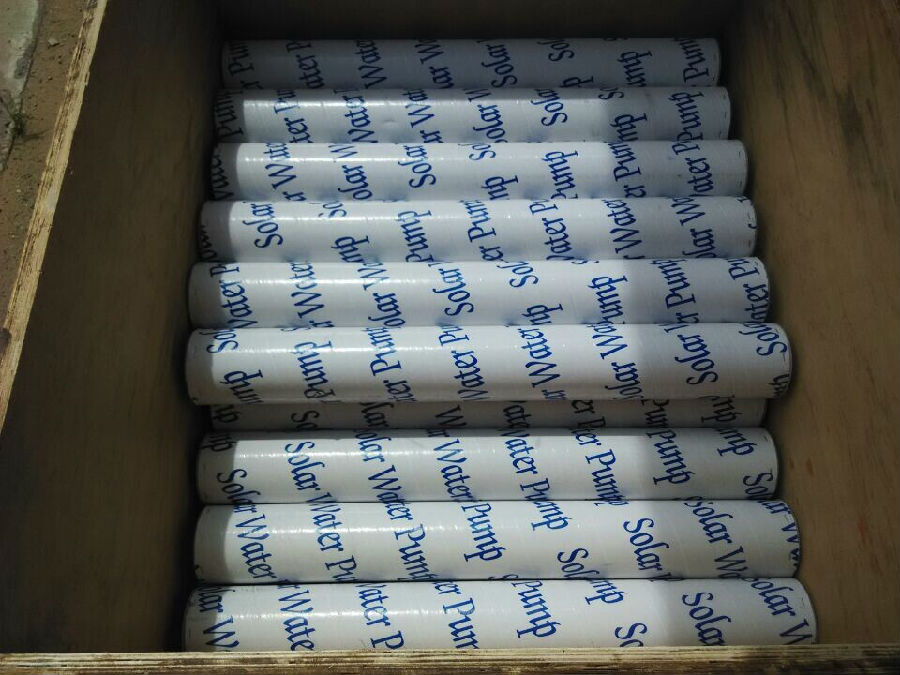
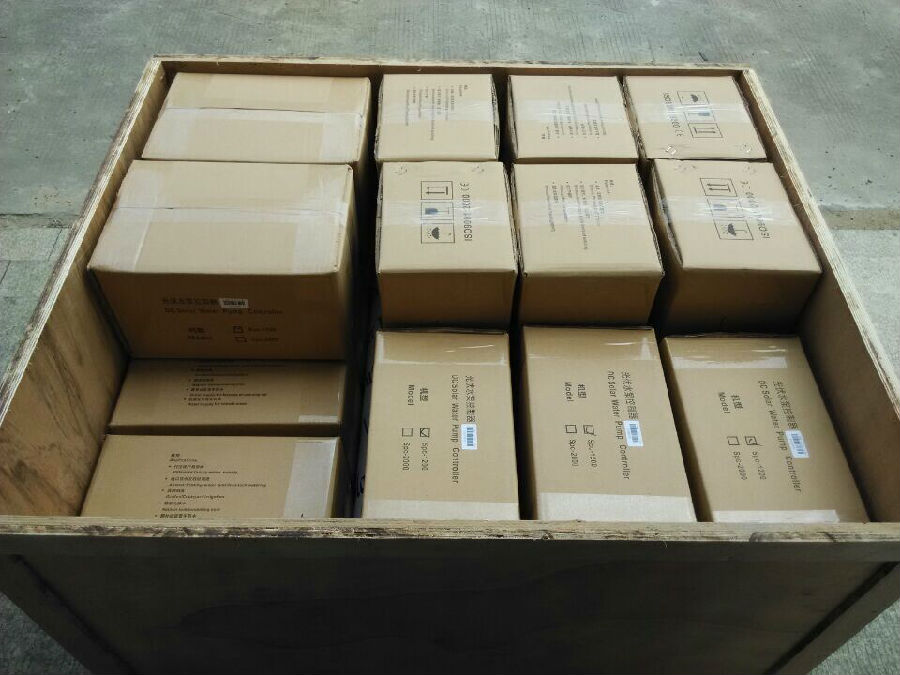
- Q: The problem of installing pressurized water pump in solar hot water outlet pipe
- after the installation of the pump shaft, the impeller should be no friction sound or stuck phenomenon, or the pump should be opened to check the reasons.
- Q: How does the efficiency of a solar pump system vary with different water viscosities?
- The efficiency of a solar pump system is not directly affected by water viscosities. The efficiency primarily depends on factors such as the design and quality of the pump, the solar panel's capacity, and the overall system configuration. Water viscosity does not significantly impact the system's ability to convert solar energy into mechanical energy for pumping water.
- Q: How does a solar pump help in reducing the use of irrigation water?
- A solar pump helps in reducing the use of irrigation water by utilizing solar energy to power the pump, which eliminates the need for grid electricity or fuel. This means that farmers can pump water from a sustainable source, such as a well or river, without relying on limited water resources. By using a solar pump, farmers can efficiently water their crops while minimizing water wastage, leading to a significant reduction in the overall use of irrigation water.
- Q: Can a solar pump be used in areas with limited access to water storage facilities?
- Yes, a solar pump can be used in areas with limited access to water storage facilities. Solar pumps are designed to draw water from various sources such as wells, boreholes, rivers, or lakes, and pump it directly to the required location without the need for extensive water storage infrastructure. This makes them an ideal solution for areas where water storage facilities are limited or non-existent, providing a reliable and sustainable water supply.
- Q: Can solar pumps be used for water supply in mining or construction sites?
- Yes, solar pumps can be used for water supply in mining or construction sites. They are a sustainable and cost-effective solution that can provide a reliable source of water for various purposes, such as dust control, equipment cooling, and drinking water supply. Solar pumps eliminate the need for electricity or fuel, making them suitable for remote locations and reducing operational costs. Additionally, they are environmentally friendly and can help reduce carbon emissions compared to traditional pumps powered by fossil fuels.
- Q: How do you choose the right size of solar pump for your needs?
- To choose the right size of a solar pump for your needs, you should consider factors such as the water demand, the total dynamic head (TDH) or vertical lift required, and the solar panel capacity. Assess your water requirements and the distance the water needs to be pumped, as this will determine the TDH. Then, select a solar pump that can meet this TDH while also considering its flow rate capacity. Additionally, ensure that the solar panels you have or plan to install can generate enough power to operate the pump efficiently. Consulting with a solar pump expert or conducting thorough research can help you make an informed decision.
- Q: Do solar pumps require a lot of space for installation?
- No, solar pumps do not require a lot of space for installation. They are compact and can be easily installed in small spaces, making them suitable for various applications including agriculture, residential, and commercial use.
- Q: How does a solar pump handle water source contamination from chemical manufacturing?
- A solar pump alone cannot handle water source contamination from chemical manufacturing. It is primarily designed to pump water using solar energy. However, to address contamination issues, additional water treatment methods or filtration systems would be necessary to remove or neutralize the chemicals.
- Q: Are there any regulations on the disposal of solar pump components?
- The disposal of solar pump components is regulated by various environmental regulations and guidelines to ensure proper handling and minimize the impact on the environment. In the United States, for example, the Environmental Protection Agency (EPA) oversees the disposal of electronic waste, which includes solar pump components. The EPA has established specific guidelines and regulations to prevent the release of hazardous materials into the environment. In addition to federal regulations, many states and local governments have their own regulations on the disposal of electronic waste, including solar pump components. These regulations require individuals and businesses to recycle or dispose of electronic waste through approved channels, such as licensed recycling facilities or collection events. It is important to note that solar pump components may contain hazardous materials, such as lead, cadmium, or mercury. These materials can be harmful to human health and the environment if not disposed of properly. Therefore, it is crucial to follow the regulations and guidelines set forth by the relevant authorities to ensure the safe and environmentally friendly disposal of these components. To determine the specific regulations applicable to the disposal of solar pump components in a particular area, it is recommended to consult with local environmental agencies, waste management authorities, or recycling facilities. These entities can provide accurate and up-to-date information on the proper disposal methods and any specific regulations that must be followed.
- Q: What types of solar pumps are available in the market?
- There are several types of solar pumps available in the market, including submersible solar pumps, surface solar pumps, and floating solar pumps.
Send your message to us
Shurflo Solar Submersible Water Pump
- Loading Port:
- Shanghai
- Payment Terms:
- TT OR LC
- Min Order Qty:
- -
- Supply Capability:
- 300 set/month
OKorder Service Pledge
Quality Product, Order Online Tracking, Timely Delivery
OKorder Financial Service
Credit Rating, Credit Services, Credit Purchasing
Similar products
Hot products
Hot Searches
Related keywords

